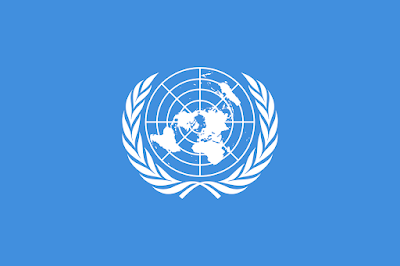What Is the United Nations? A Global Force for Peace and Cooperation
The Birth of a Global Institution
The United Nations (UN) is an international organization founded on October 24, 1945, in the aftermath of World War II. It was established with the primary goal of promoting peace, preventing conflicts, and fostering international cooperation among nations. The UN replaced the League of Nations, which was unable to prevent the outbreak of another devastating world war. The UN Charter serves as the foundation for the organization and outlines its structure, principles, and functions.
Principles and Objectives
The United Nations operates based on several key principles, as outlined in Article 2 of the UN Charter. These principles include the sovereign equality of all member states, peaceful settlement of disputes, non-interference in domestic affairs, and the prohibition of the threat or use of force except in cases of self-defense or when authorized by the Security Council.
The objectives of the United Nations, as stated in Article 1 of the UN Charter, are:
- Maintaining international peace and security.
- Developing friendly relations among nations.
- Promoting social progress, better living standards, and human rights.
- Cooperating in solving international problems and promoting respect for international law.
Structure and Key Organs
The United Nations is composed of six main organs that work together to achieve its goals:
General Assembly: As the main deliberative body, the General Assembly allows member states to discuss and make decisions on significant international issues. Each member state has one vote, and important decisions require a two-thirds majority.
Security Council: The Security Council is responsible for maintaining international peace and security. It consists of 15 member states, including five permanent members (China, France, Russia, the United Kingdom, and the United States) and ten non-permanent members elected for two-year terms. The Security Council can impose sanctions, authorize peacekeeping operations, and take measures to address threats to international peace.
Economic and Social Council: The Economic and Social Council focuses on economic and social development issues. It coordinates international efforts to address poverty, promote sustainable development, and improve living standards worldwide.
Secretariat: The Secretariat is the administrative arm of the United Nations. It is headed by the Secretary-General, who is appointed by the General Assembly upon the recommendation of the Security Council. The Secretariat plays a crucial role in facilitating communication, implementing decisions, and coordinating activities within the UN system.
International Court of Justice: The International Court of Justice is the principal judicial organ of the United Nations. It settles legal disputes between states and provides advisory opinions on legal questions referred to it by authorized UN organs.
Trusteeship Council: The Trusteeship Council oversaw the administration of trust territories until the last of these territories achieved independence. It now focuses on issues related to decolonization and the transition of territories to self-governance.
Impact and Challenges
The United Nations has played a significant role in various global issues, including peacekeeping operations, human rights advocacy, environmental conservation, and promoting sustainable development. It has facilitated dialogues, negotiations, and agreements among nations, aiming to resolve conflicts peacefully and protect the fundamental rights and dignity of individuals worldwide.
However, the UN faces challenges in effectively addressing complex issues due to its diverse membership and political considerations. Balancing the interests of different member states, ensuring accountability, and taking decisive action in times of crisis are ongoing challenges that require ongoing reform efforts.
External Link: United Nations Official Website
Conclusion
The United Nations stands as a powerful symbol of global cooperation and collective action. With its focus on peace, security, human rights, and sustainable development, the UN continues to work towards creating a more just, peaceful, and prosperous world. By understanding the structure, principles, and objectives of the United Nations, individuals can actively engage in global affairs and contribute to the pursuit of a better future for all.
Law Citation: United Nations Charter, 26 June 1945, 1 UNTS XVI, available at: https://www.un.org/en/about-us/un-charter
Disclaimer: The information provided in this article is based on the knowledge and understanding as of September 2021. Please refer to the official United Nations website for the most up-to-date information.




Post a Comment
0 Comments